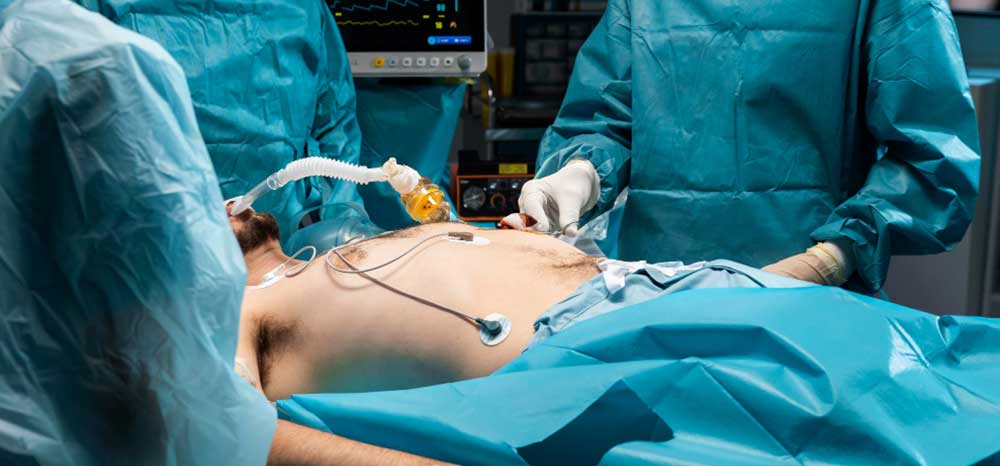Undergoing open heart surgery is a major milestone, and recovery is a journey that requires time, patience, and support. Whether you or a loved one has recently undergone the procedure, understanding what happens after surgery is just as important as preparing for it.
If you're considering open heart surgery in Surat, or have just come out of it, here's a comprehensive guide to help you navigate life after surgery with more confidence and clarity.
What to Expect Immediately After Surgery
The first few hours after open heart surgery are kept in the critical care unit(ICU), where doctors and nurses monitor your vitals closely. You may wake up with tubes and monitors attached to your body—this is normal and helps the medical team track your recovery.
Common immediate post-op effects include:
- Grogginess or confusion from anesthesia
- Soreness in the chest area
- A sore throat from the breathing tube
- Fatigue and muscle weakness
Hospitals offering open heart surgery in Surat are well-equipped to manage these early post-op symptoms and provide personalized care.
Hospital Stay and Recovery Timeline
Most patients remain in the hospital for 5 to 7 days after surgery. During this time:
- You’ll gradually start sitting up, walking short distances, and eating light meals.
- Nurses will help with breathing exercises and leg movements to prevent complications.
- Pain management is tailored to your comfort.
Your heart surgeon and physiotherapist will monitor your progress to determine when it's safe for discharge. Hospitals performing open heart surgery in Surat generally provide discharge plans that include detailed recovery instructions.
At-Home Recovery: The First Few Weeks
Once home, the healing continues. It may take 6 to 12 weeks before you feel “normal” again. Here are some crucial aspects of recovery at home:
1. Rest and Gentle Movement
Avoid strenuous activities. Short walks are encouraged, but climbing stairs, lifting heavy items, or driving should be avoided until cleared by your doctor.
2. Wound Care
Keep the surgical wound clean and dry. Watch for signs of infection like redness, swelling, or discharge, and consult your doctor if you notice anything unusual.
3. Pain Management
Mild discomfort is normal. Physicians may recommend over-the-counter alternatives or prescribe medication to ease the pain.
4. Diet and Hydration
Follow a heart-healthy diet—low in salt, sugar, and saturated fats. Include fresh fruits, vegetables, and lean proteins. Stay hydrated, but monitor fluid intake if advised.
Emotional Health: The Hidden Part of Healing
Open heart surgery doesn’t just affect your body—it can also take a toll on your mental health. Many patients report feeling:
- Depressed
- Anxious
- Fearful of another cardiac event
This is common and nothing to be ashamed of. If these symptoms continue, consult your physician or a counselor. Many open heart surgery clinics in Surat offer post-operative counseling as part of the recovery plan.
Cardiac Rehabilitation: Getting Back to Normal
One of the most crucial elements of recovery is cardiac rehabilitation. It’s a medically supervised program that includes:
- Exercise training
- Nutritional counseling
- Emotional support
- Education about heart-healthy living
Hospitals known for open heart surgery in Surat often include rehab programs that are custom-made for each patient, improving recovery outcomes and reducing the risk of future heart problems.
Returning to Work and Daily Activities
Depending on your profession and physical health, you might return to work within 6 to 12 weeks. Manual labor or high-stress jobs may require more time off. Always follow your doctor’s advice and don’t rush the process.
You can usually resume:
- Walking and light chores: within 2–4 weeks
- Driving: after 4–6 weeks (if cleared by your doctor)
- Intimacy: when you feel comfortable, typically after 6–8 weeks
Preventing Future Heart Issues
Open heart surgery treats the problem, but prevention is the long-term goal. Here's how you can maintain your heart health:
- Quit smoking
- Control blood pressure and cholesterol
- Follow a low-fat, high-fiber diet
- Manage diabetes if applicable
- Engage in regular, doctor-approved physical activity
By choosing open heart surgery in Surat, you gain access to follow-up care, wellness programs, and ongoing check-ups that help you stay on track long after surgery.
Final Thoughts
Life after open heart surgery may feel overwhelming at first, but with the right support and a positive mindset, recovery can be smooth and empowering. The key is to listen to your body, follow medical guidance, and lean on loved ones and professionals for help.
If you're planning to undergo or recover from open heart surgery in Surat, know that you’re not alone. Many world-class facilities and compassionate cardiac experts are available to help you live a healthier, fuller life post-surgery.





Comments